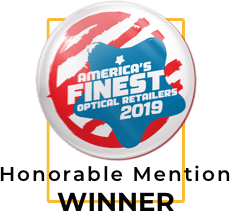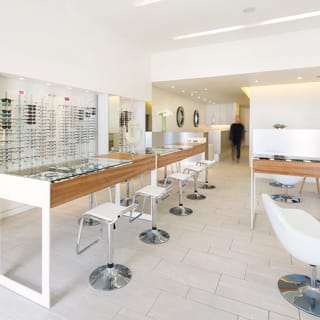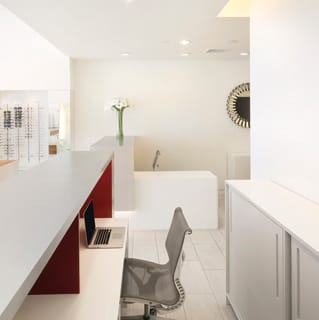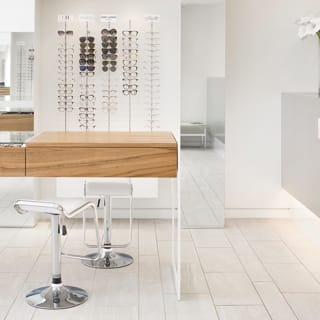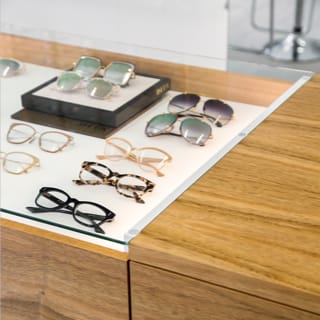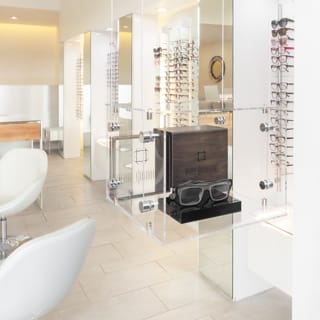When discussing myopia, or nearsightedness, many people think of difficulty seeing distant objects or needing glasses for activities like driving or watching a movie. However, this common vision issue can have far more serious implications than inconvenience or dependence on corrective lenses.
The pressing question is, can myopia lead to blindness? The answer is yes—severe myopia can lead to blindness in some cases if complications arise and are left untreated.
Understanding how myopia progresses and the risks it poses is essential for maintaining long-term eye health. At Eye Love Optometry, we work with our patients to monitor and manage myopia effectively, preventing potential vision loss while helping them achieve their clearest vision.
How Does Myopia Affect the Eye?
Myopia develops when the eye becomes elongated, causing light to focus in front of the retina instead of directly on it. This leads to blurry vision when looking at distant objects. While myopia often begins in childhood and stabilizes in early adulthood, its progression can result in complications if the eye elongation becomes extreme.
Severe or high myopia increases the risk of several eye health problems, including:
Retinal detachment, where the retina pulls away from the back of the eye, leading to severe vision loss if not treated promptly.
Myopic maculopathy, a condition where the central part of the retina (the macula) is damaged, causing difficulty with fine detail and central vision.
Glaucoma and cataracts, which are more prevalent in individuals with high myopia compared to those with normal vision.
These complications arise because the elongated shape of the eye creates structural vulnerabilities, especially in the retina and optic nerve. Understanding these risks highlights why managing myopia is about more than just prescribing stronger glasses.
Routine eye exams play a vital role in detecting these potential issues early. By keeping up with regular checkups, patients can address complications before they progress to more severe stages.
Why Is Myopia Increasing?
Modern lifestyles have contributed significantly to the global rise in myopia. Increased screen time, prolonged close-up work like reading, and reduced time spent outdoors have all been linked to a higher prevalence of nearsightedness. This is particularly concerning for children, as their eyes are still developing, making them more susceptible to changes that can lead to severe myopia in adulthood.
Parents play a key role in managing their child’s risk of developing myopia. Encouraging outdoor activities and balancing screen time with regular breaks can help slow its progression. Understanding the importance of healthy visual habits, especially during childhood, is crucial in reducing the long-term impact of myopia.
https://www.shutterstock.com/create/editor/CiQ4Y2FkMjY5YS0zNTE5LTRlOWEtYmQxMC1lNDFlNDMzNWRjNWY
Treatment Options to Slow Myopia Progression
The good news is that there are now effective ways to slow the progression of myopia, particularly in children. Some of the most promising treatments include:
Orthokeratology (Ortho-K): Specially designed contact lenses worn overnight to reshape the cornea temporarily. During the day, users enjoy clear vision without the need for glasses or contact lenses.
Atropine eye drops: Low-dose atropine drops have been shown to slow the progression of myopia in children. These drops are typically used alongside other interventions for maximum effectiveness.
Multifocal contact lenses: These lenses can correct vision while simultaneously slowing myopia progression.
Additionally, lifestyle changes such as increased outdoor time, regular eye breaks during close-up work, and proper lighting can complement medical treatments. Combining these strategies can significantly reduce the likelihood of complications later in life.
The Dangers of High Myopia
High myopia, defined as -6.00 diopters or greater, is more than just a stronger prescription. It is a condition requiring careful monitoring due to the increased risk of severe complications. The elongation of the eye stretches the retina and other tissues, making them thinner and more fragile. This can lead to conditions like myopic maculopathy or retinal tears, which may result in permanent vision loss if not addressed.
Patients with high myopia also face a greater risk of developing glaucoma, where elevated pressure in the eye damages the optic nerve. Cataracts, a clouding of the eye’s lens, also tend to occur earlier and more frequently in individuals with high myopia.
At Eye Love Optometry, we use diagnostic tools to monitor high-risk patients and detect early signs of these conditions. Regular screenings ensure that any issues are caught early, when they are easier to treat.
How to Reduce the Risk of Vision Loss
The potential for blindness due to myopia may sound alarming, but proactive care can significantly reduce the risks. Managing myopia is a lifelong process that involves regular monitoring, effective treatments, and healthy visual habits. Key strategies include:
Annual comprehensive eye exams: These exams are essential for identifying changes in your vision or detecting early signs of retinal complications.
Protective eyewear: Sunglasses and transition lenses that block UV rays help shield the retina and reduce the risk of damage.
Healthy habits for screen time: The 20-20-20 Rule—taking a 20-second break every 20 minutes to look at something 20 feet away—can reduce strain on the eyes.
Immediate attention to symptoms: Symptoms like flashes of light, new floaters, or shadows in your vision may indicate a serious problem, such as retinal detachment, requiring urgent attention.
By integrating these habits into your daily routine and maintaining regular appointments, you can protect your vision and minimize the risk of severe outcomes.
Take Control of Your Vision Health
While myopia can pose serious risks, including blindness in severe cases, proactive care and early intervention can make all the difference. With the right management strategies and regular monitoring, you can protect your vision and prevent complications. Whether you are concerned about your own eyesight or your child’s, understanding myopia and taking action is the first step toward lifelong eye health.
At Eye Love Optometry, we are here to guide you every step of the way. Our team of experts uses personalized care plans to help manage myopia and safeguard your vision.
Don’t wait—take control of your eye health today. Schedule an appointment with us and let us help you see the world clearly and confidently. […]

